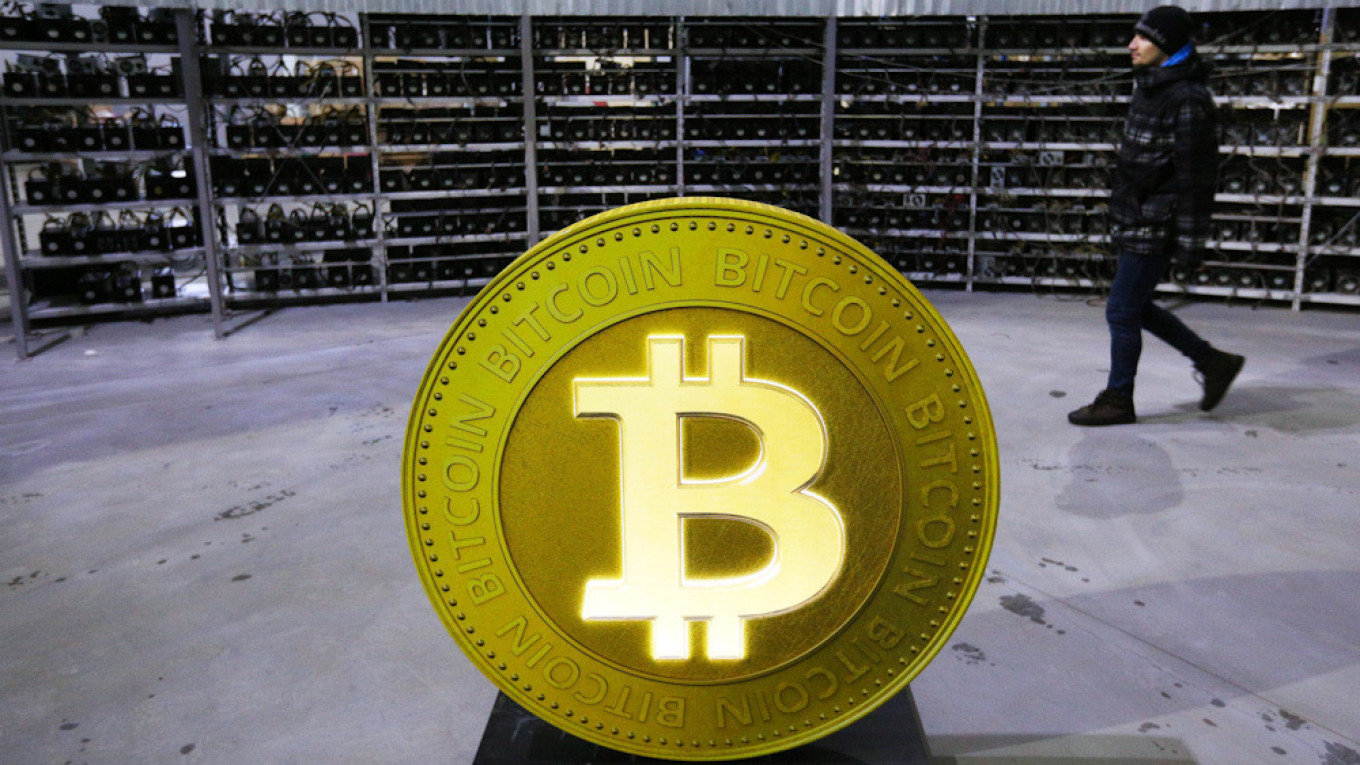As the value of Bitcoin soared this year, bringing cryptocurrencies back into the global spotlight, Russia’s opposition leader Alexei Navalny saw his team’s crypto wallet fatten.
Public blockchain data shows that a Bitcoin address tied to Navalny received 3.5 Bitcoin ($120,000) at the end of January as supporters rushed to donate to the Kremlin critic following his return to Russia and subsequent jailing. The data shows Navalny’s team received more donations in Bitcoin in January than all of 2020.
In total, publicly available information shows that over the last five years, 658 Bitcoin — worth over $30 million at current rates — have been sent to the cryptocurrency wallet managed by Navalny’s aides. At the time of writing the wallet, which is run by key ally Leonid Volkov, held 1.5 Bitcoin.
Speaking with The Moscow Times, Volkov said that the team sees the decentralized nature of cryptocurrencies as a useful tool for circumventing the Russian authorities, who have increased their crackdown on Navalny and his supporters, including their funds.
In neighboring Belarus, which has seen months of anti-government rallies and unrest after the controversial summer re-election of Aleksandr Lukashenko, activists have been forced to switch to cryptocurrencies after authorities in Belarus ordered banks to seize money raised in small donations and paid out as compensation to victims of police crackdowns.
Navalny often has his personal accounts and those of his Anti-Corruption Foundation frozen. In March 2020, he said the Kremlin had frozen all Russian bank accounts belonging to him and his family, including his elderly parents.
However, Volkov said that cryptocurrencies have only made up 10% to 15% of all donations since they were launched, and that most of them were received when Bitcoin was valued at a much lower rate.
The recent spike in donations coincided with a general increase in funds the Navalny team received following his return to Moscow, possibly boosted by its investigation into a palace allegedly belonging to Putin that garnered over 100 million views on YouTube, Volkov added.
“We don’t keep our cryptocurrencies as an investment, whenever we receive some we trade them into currency as soon as possible,” Volkov said.
Blockchain data shows that the 3.5 Bitcoin the Navalny team received during January and February protests weekends have already been taken out of the wallet.
Volkov said cryptocurrencies like Bitcoin act as a “deterrent” against the authority’s attempts to block Navalny’s fundraising.
“Since officials realize that they can’t block our fundraising through Bitcoin, they are less encouraged to block our other channels too as they believe we will be able to get funds anyway. So paradoxically, cryptocurrencies act as a protective mechanism for our traditional channels as well,” he said.
Beyond its fundraising function, Volkov said Navalny's team also uses Bitcoin as a currency exchange tool.
The activist’s supporters abroad frequently use PayPal for donations, but withdrawing rubles from a PayPal account is complex, so the opposition group prefers to buy Bitcoin using the PayPal account then exchange them for rubles.
“Only one-third of all the funds that have gone through our wallet are actual donations, the rest have been flows of our own money,“ Volkov said.
Russia’s restrictive laws on cryptocurrencies make Bitcoin use limited in the country. In July, Putin signed a bill on digital financial assets into law that legalized cryptocurrencies but prohibited their use as payment for goods and services. The Russian Labor Ministry has also banned government officials from owning and using cryptocurrencies.
This, and the notorious volatility of Bitcoin make relying on cryptocurrencies impractical for Navalny and his allies, Volkov said.
“We still need traditional bank accounts to pay our staff across Russia and conduct our daily tasks, and cryptocurrencies aren’t the answer at this point, there is only so much we can do with them.”
Cryptocurrencies also remain a relative fringe phenomenon in the country, and a recent survey showed that 65% of Russians said they did not trust Bitcoin. Playing on the general distrustful mood in society toward cryptocurrencies, state-controlled media have been eager to claim Navalny’s organization is using political donations via Bitcoin as payment for high-profile investigations into Russian officials, allegations Volkov calls “absurd.”
Last option
At the end of last year, Putin signed into law a bill allowing any politically active, foreign-funded individual or organization to be labeled a “foreign agent.” Under the new requirements groups and individuals designated as such have to put that label on their publications and submit detailed paperwork to the authorities. Failure to comply with these new requirements could lead to a court ruling blocking the offending organization’s access to funds.
In one such instance, Russia Behind Bars, an NGO that provides support for prisoners, last summer had its accounts frozen and quickly set up crypto wallets to keep its funding flowing.
Mitya Aleshkovsky, co-founder of the popular fundraising platform Nuzhna Pomosh, or Help Needed, said that while most NGOs are still able to fundraise through traditional methods, the new restrictive laws might force organizations and activists to turn to alternative methods of fundraising, including Bitcoin.
“Right now, bank transfers are still very easy to do and Russians have a multitude of options on how to support different organizations. But if things get worse NGOs will be forced to go and cryptocurrencies might become more widespread.”
A Message from The Moscow Times:
Dear readers,
We are facing unprecedented challenges. Russia's Prosecutor General's Office has designated The Moscow Times as an "undesirable" organization, criminalizing our work and putting our staff at risk of prosecution. This follows our earlier unjust labeling as a "foreign agent."
These actions are direct attempts to silence independent journalism in Russia. The authorities claim our work "discredits the decisions of the Russian leadership." We see things differently: we strive to provide accurate, unbiased reporting on Russia.
We, the journalists of The Moscow Times, refuse to be silenced. But to continue our work, we need your help.
Your support, no matter how small, makes a world of difference. If you can, please support us monthly starting from just $2. It's quick to set up, and every contribution makes a significant impact.
By supporting The Moscow Times, you're defending open, independent journalism in the face of repression. Thank you for standing with us.
Remind me later.







